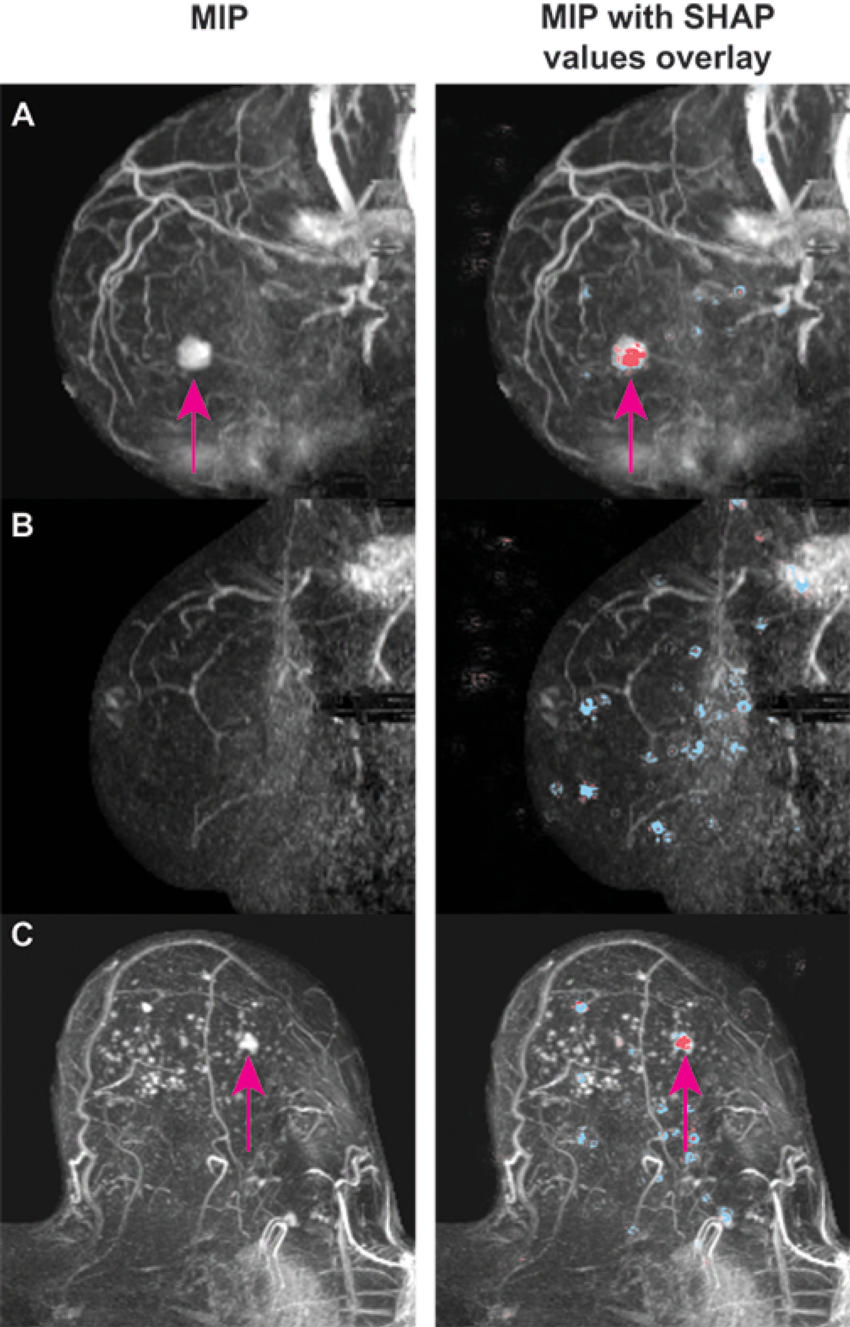DENSE Trial Indicates AI Helps Rule Out Cancer in Dense Breasts
 New research from a clinical trial shows that an artificial intelligence (AI) tool based on a deep learning model can quickly and accurately sift through breast MRs in women with dense breasts to eliminate those without cancer. This could allow radiologists to focus on more complex cases, according to the study published in Radiology.
New research from a clinical trial shows that an artificial intelligence (AI) tool based on a deep learning model can quickly and accurately sift through breast MRs in women with dense breasts to eliminate those without cancer. This could allow radiologists to focus on more complex cases, according to the study published in Radiology.
Mammography is less sensitive in women with extremely dense breasts than in women with fatty breasts. Supplemental screening in women with extremely dense breasts increases the sensitivity of cancer detection. Research from the Dense Tissue and Early Breast Neoplasm Screening (DENSE) Trial, a large study based in the Netherlands, supported the use of supplemental screening with MR.
“The DENSE trial showed that additional MR screening for women with extremely dense breasts was beneficial,” said study lead author Erik Verburg, M.Sc., from the Image Sciences Institute at the University Medical Center Utrecht in the Netherlands. “On the other hand, the DENSE trial confirmed that the vast majority of screened women do not have any suspicious findings on MR images.”
Since most MR images show normal anatomical and physiological variation that may not require radiological review, ways to triage these normal MRs to reduce radiologist workload are needed.
In the first study of its kind, Verburg and colleagues set out to determine the feasibility of an automated triaging method based on deep learning, a sophisticated type of AI. They used breast MR data from the DENSE trial to develop and train the deep learning model to distinguish between breasts with and without lesions. The model was trained on data from seven hospitals and tested on data from an eighth hospital.
More than 4,500 MR datasets of extremely dense breasts were included. Of the 9,162 breasts, 838 had at least one lesion, of which 77 were malignant, and 8,324 had no lesions. The deep learning model considered 90.7% of the MRIs with lesions to be non-normal and triaged them to radiological review. It dismissed about 40% of the lesion-free MRIs without missing any cancers.
“We showed that it is possible to safely use artificial intelligence to dismiss breast screening MRIs without missing any malignant disease,” Verburg said. “The results were better than expected. Forty percent is a good start. However, we have still 60% to improve.”
The AI-based triaging system has the potential to significantly reduce radiologist workload, Verburg said. “The approach can first be used to assist radiologists to reduce overall reading time,” he added. “Consequently, more time could become available to focus on the really complex breast MR examinations.”
The researchers plan to validate the model in other datasets and deploy it in subsequent screening rounds of the DENSE trial.
Related Articles
Citation
DENSE Trial Indicates AI Helps Rule Out Cancer in Dense Breasts. Appl Radiol.
October 7, 2021